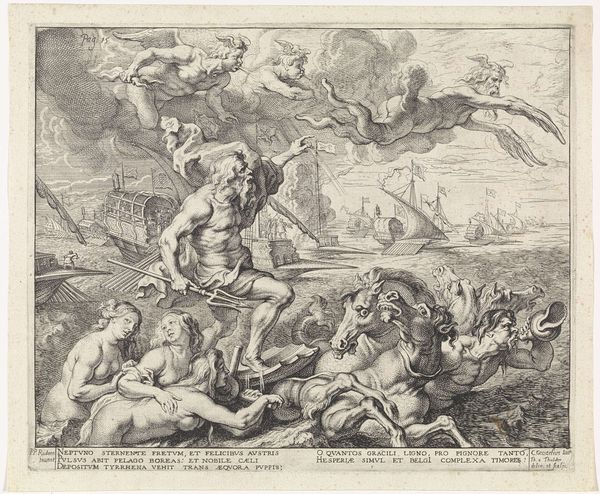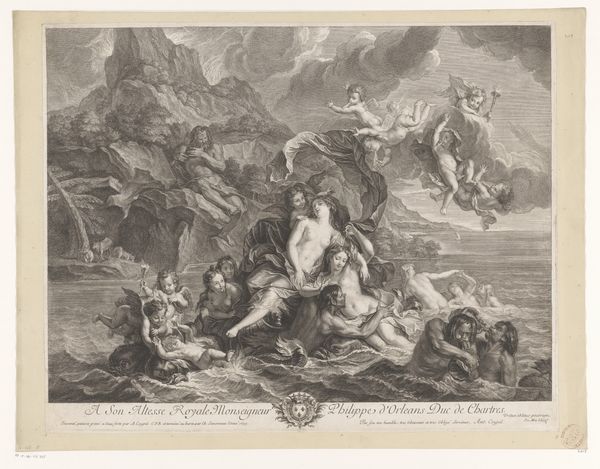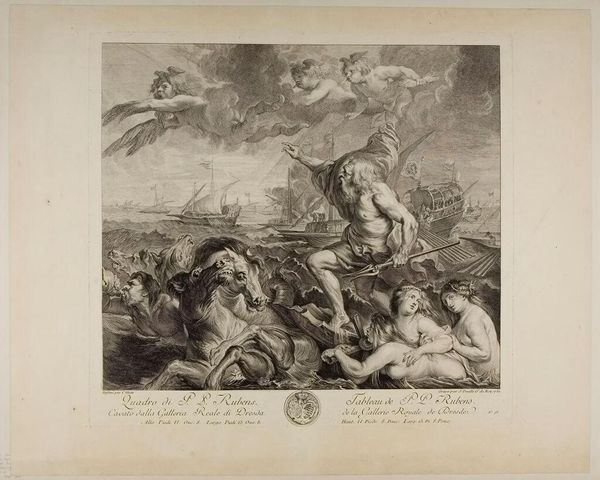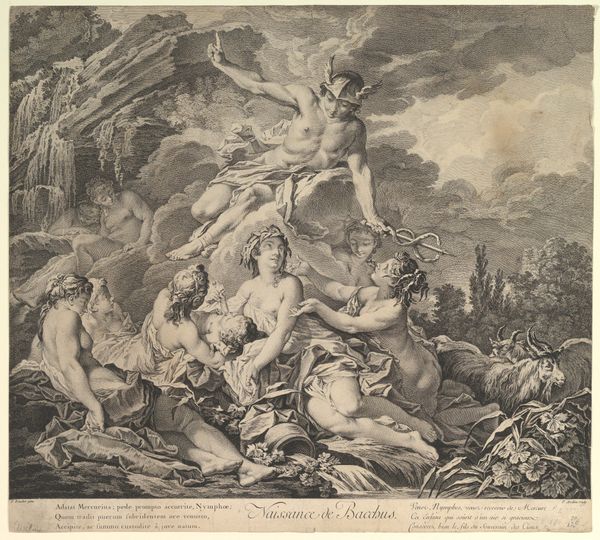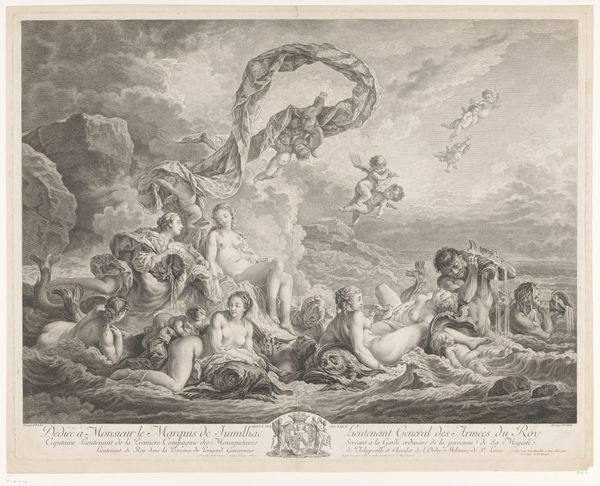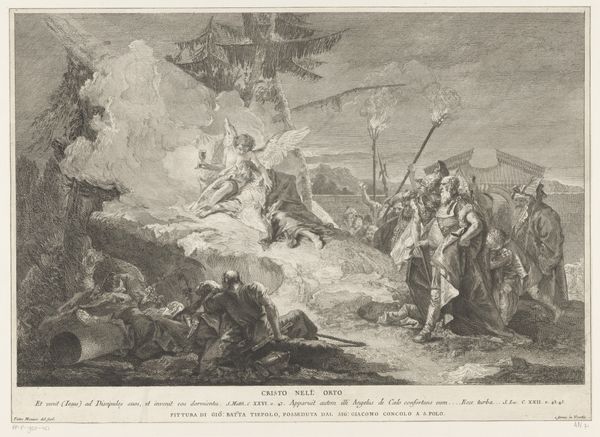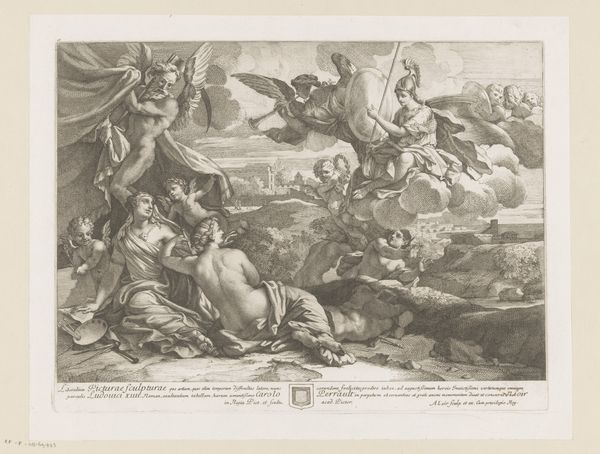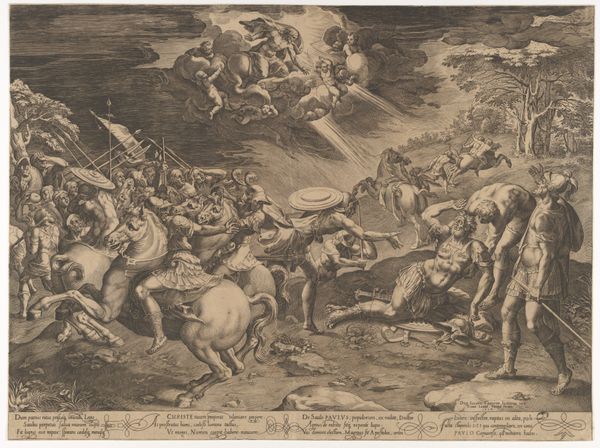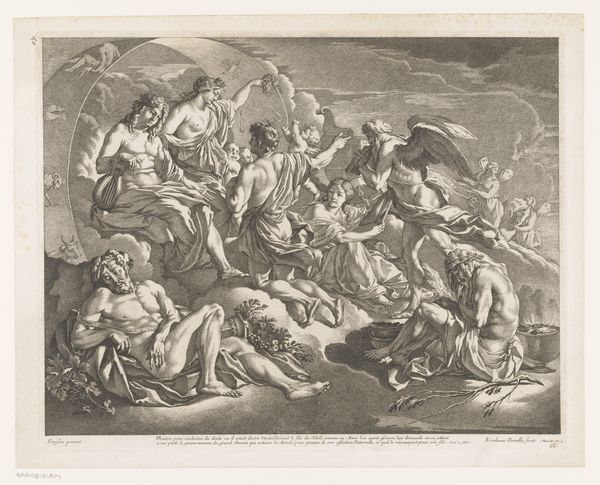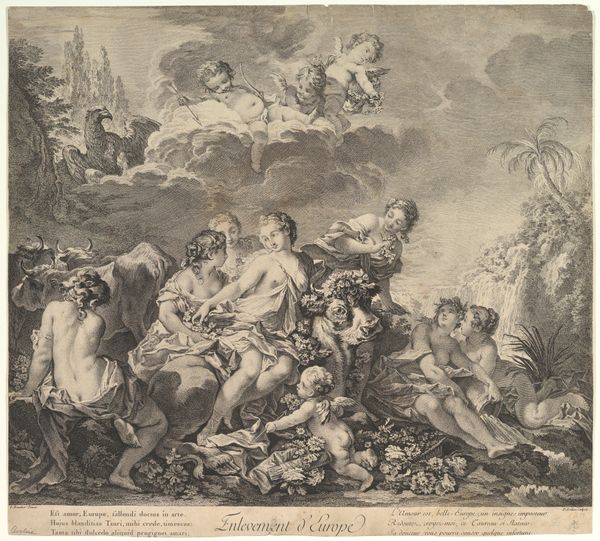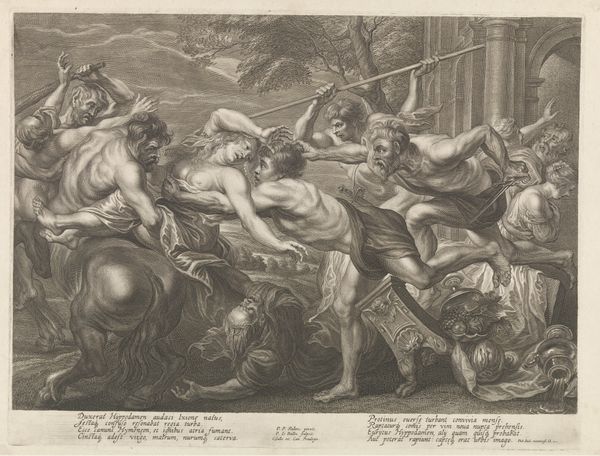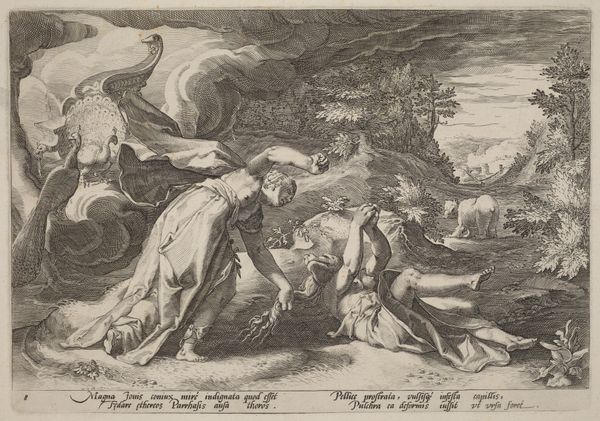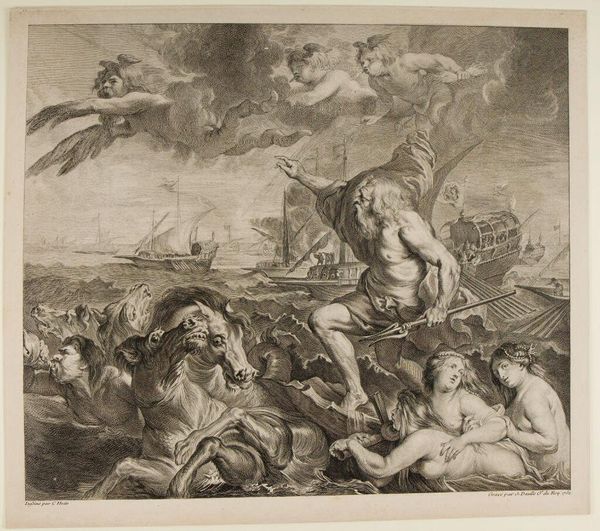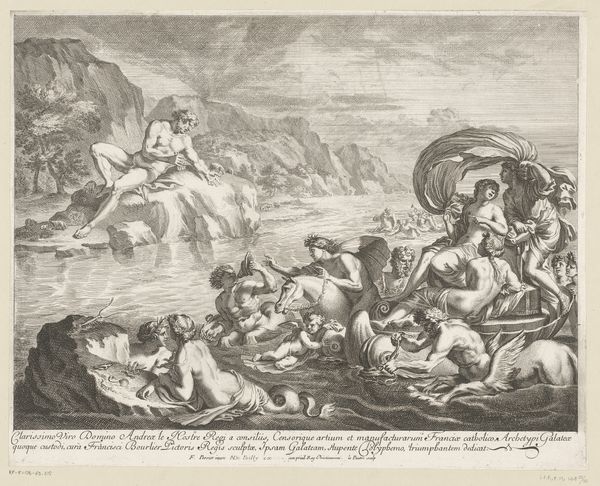
engraving
#
allegory
#
baroque
#
classical-realism
#
history-painting
#
engraving
Dimensions: height 449 mm, width 484 mm
Copyright: Rijks Museum: Open Domain
Editor: This is “Neptune Calming the Storm,” an engraving by Jean Daullé, from 1752, after Peter Paul Rubens. All these churning waves and figures create a really dynamic scene. But also…kind of a scary one? What strikes you when you look at it? Curator: "Scary" is a wonderful word to use, yes. This baroque piece seems to me a dance between chaos and order. Daullé is working with strong diagonals that pull your eyes in many directions, don't you think? Look how Neptune, with that assertive trident, brings a muscular command to what would otherwise be utter turbulence. It is as if the Old Testament and the classical world had a love child. Editor: I see that, especially the way he's positioned to dominate the composition. Are the other figures, like the cherubs at the top, also meant to calm things down? Curator: Indeed. Those cherubs offer this airy counterpoint, these little puffs of divine serenity. It's a smart strategy by Daullé, don't you agree? To use these conventional symbols—chubby cherubs, classical nudes, a god—in this theatre of roiling waves to convey an allegorical struggle. It also reminds us how engravers helped disseminate imagery of paintings. I mean, without Daullé, many more of us would never have known about Rubens' painting. Editor: That's a great point, I never thought of the dissemination aspect before. Seeing the piece deconstructed that way makes the moment of calm even more meaningful, and also emphasizes the engraver’s vital role! Thanks! Curator: My pleasure! The magic of art lies not only in the creator but the eyes that find new stories within it.
Comments
No comments
Be the first to comment and join the conversation on the ultimate creative platform.
